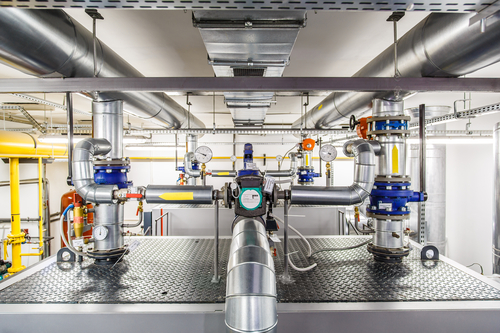Chinese Interest in used machines and thus Pre-Shipment Inspections (PSI) is rising
Chinese media and global trade data agree that imports in China this summer are rising against expectations despite the global coronavirus crisis. According to CNBC, there were 6.2% more imports in June 2020 than in the same month in 2019, which contradicts the annual trend since 2018 and could theoretically points to a sharp jump in China’s global imports in the near future. This trend is also confirmed by the increasing demand for Pre-Shipment Inspection (PSI China) this month.

This trend is also reflected in Germany after the very difficult months of April and May, in which exports were up to 31 % lower than in the same month last year. Already in May, we were able to record a month-to-month increase and this is expected to continue into June and July.
As the crisis comes to an end, it can be assumed that most companies will control their spending somewhat more closely. Instead of buying expensive new machines, it may be more cost-effective to buy cheaper used machines, especially since these machines have usually only been in use for a few years and are still in good condition. In most cases, these machines are also completely serviced to prepare them for export and therefore differ only slightly from a new machine.
Many companies do not realize that used machines which shall be exported to China still require a quality control inspection by Chinese customs before they can be shipped. The authorized Chinese customs inspection in Germany is handled by the China Certification & Inspection Centre (CCIC). They will check that the used machines meet Chinese safety standards and this compliance must be confirmed by a pre-shipment inspection report. We can manage this report as well as the pre-shipment inspection itself for you, please do not hesitate to contact us if you have any questions.
Here you can find information about CCIC Pre-Shipment Inspection (PSI). Please do not hesitate to contact us for further details. You can contact us by email or call us at +49692713769150 (for Europe) or + 1 773 654 2673 (for USA).
Shenzhen plans to install 30,000 new 5G base stations in 2020
According to press releases, the local government of the Chinese city of Shenzhen plans to install 30,000 new 5G base stations in 2020. This will enable the use of 5G technology by customers of all Chinese providers in Shenzhen, according to the city government. As of the end of last year, Shenzhen had about 15,000 5G base stations in key areas of the city to test the new technology, according to the Shenzhen City Industry and IT Office.
Shenzhen is a technology hub in the southern Chinese province of Guangdong and one of the first cities in China to test the 5G network. The city with more than 12.5 million residents is home to telecommunication giants like Huawei, ZTE and other technology companies such as Tencent Holdings. The number of 5G users in the capital Beijing recently exceeded 2 million after network operators launched 5G service five months ago. By the end of March, Beijing had around 17,750 5G base stations and towers installed.

The Beijing Municipality estimates that the number of 5G base stations in the capital could reach 30,000 by the end of the year. In order to improve coverage and reception a further 5,000 antennas will be installed inside buildings throughout the city. According to a report, China Unicom has the largest market share in the Beijing metropolitan area with more than 1 million users of 5G, followed by China Mobile with 728,000 customers and China Telecom with 253,000 active users.
The Chinese Academy of Information and Communication Technology expects the introduction of 5G technology to create more than 8 million new jobs in China by 2030. By 2025, about 28 percent of mobile communication data connections in China are expected to be over the 5G network. This would correspond to one third of all 5G connections worldwide. The production, operation and importation of wireless devices in China are subject to the State Radio Regulation of China (SRRC) regulations issued by the Ministry of Industry and Information Technology (MIIT). We will check for you without obligation whether your product requires an SRRC test and will prepare a non-binding offer to give you an idea of the costs and effort involved.
For more information on how CCC certification, the CCC Self-Declaration and voluntary CCAP or CQC certification may affect your company, or for more information about CCC certification in general, the process, and the associated costs, please visit our website and our News Section where you will find current updates twice a week.
Please do not hesitate to contact us for further details and consultation. You can contact us via e-mail, or call us (UK: +44 2071931135, Rest of Europe: +49 69 2713769150, US: +1 773 654-2673).
You can also check out our free CCC-Brochure, which can be downloaded right here as a PDF file or you consult our book (in English) “A Brief Guide to CCC: China Compulsory Certification”, which can be found directly hier on Amazon.
Here you can download our brochure about the CCC Self-Declaration.
Here you can download our brochure about the voluntary CCAP or CQC certification.
New Implementation Rules for Voluntary CCAP Certification of Interior Trim Components
In the course of adapting the CNCA implementation rule CNCA-C11-01:2020 for the complete vehicle homologation, CNCA introduced new test requirements for interior trim components. To ensure consistency between the CNCA implementation rule and the detailed CCAP implementation rule, a new version of the CCAP implementation rule for interior trim components has been active since July 1, 2020: CCAP-GZ-5101:2020.

We have listed the most important changes for you below:
- The implementation rule now also includes the standards GB38262-2019 “Flammability of interior trimming materials of buses” and GB24407-2012 “Safety and technical conditions of school buses”.
- Revised rules for the classification of certification units and the addition of new standards and material classifications of interior trimming components of buses.
- The Description Forms have been extended by technical parameters for buses.
Starting from July 1, 2020, CCAP will carry out the certification of interior trim components in accordance with the new implementation rule CCAP-GZ-5101:2020. Existing valid CCAP certificates can still be used for interior trim components of passenger cars. CCAP is striving for a “natural” adjustment of the certificates in during certificate changes.
For components for buses or school buses, a corresponding GB standard update should be carried out for already existing certificates which includes product tests.
Are you interested in getting more information regarding the new Implementation Rule for Voluntary CCAP Certification of Interior Trimming Parts? Do you have any questions about the application for certification modification? If so, please call or email us anytime. You can contact us via e-mail, or call us (UK: +44 2071931135, Rest of Europe: +49 69 2713769150, US: +1 773 654-2673).
Also check our website if you want more information regarding CCC certification, the CCC Self-Declaration and voluntary CCAP or CQC certification, or for more information about CCC certification in general, the process, and the associated costs, please visit our website and our News Section where you will find current updates twice a week.
You can also check out our free CCC-Brochure, which can be downloaded right here as a PDF file or you consult our book (in English) “A Brief Guide to CCC: China Compulsory Certification”, which can be found directly hier on Amazon.
Here you can download our brochure about the CCC Self-Declaration.
Here you can download our brochure about the voluntary CCAP or CQC certification.
Nokia becomes supplier for the 5G network of China Unicom
China Unicom, a telecommunications services provider and operator in China, recently announced that it is collaborating with Nokia to expand its core 5G network in China. The contract includes the delivery of telecom infrastructure for approximately 10 percent of the core network. The definition of the core area or core network in mobile communications includes services such as call set-up, bandwidth management, scaling and securing the network as well as new software services in the 5G network such as network slicing.
Nokia issued a press release to provide more details on the services selected by China Unicom. Unified data management, session and user administration are complemented by Nokia’s own “Data Refinery” and “NetAct” systems from the CloudBand solution. The products offered by Nokia combine China Unicom’s existing 4G network with the new 5G gateway and packet management capabilities.

In addition, Nokia currently holds a 17 percent stake in China Unicom’s VoLTE, which has recently been greatly expanded and uses Nokia’s cloud-based vIMS platform. A Nokia spokesperson said the new agreement will further deepen the partnership with China Unicom. “We will continue to support the development of China Unicom’s 5G network”. Wireless devices in China are covered by the State Radio Regulation of China (SRRC) regulations from the Ministry of Industry and Information Technology (MIIT). This means that manufacturers and importers of wireless devices must have their products tested and certified according to the SRRC regulations. We will check for you without obligation whether your product requires an SRRC test and will prepare a non-binding offer to give you an idea of the costs and effort involved.
For more information on how CCC certification, the CCC Self-Declaration and voluntary CCAP or CQC certification may affect your company, or for more information about CCC certification in general, the process, and the associated costs, please visit our website and our News Section where you will find current updates twice a week.
Please do not hesitate to contact us for further details and consultation. You can contact us via e-mail, or call us (UK: +44 2071931135, Rest of Europe: +49 69 2713769150, US: +1 773 654-2673).
You can also check out our free CCC-Brochure, which can be downloaded right here as a PDF file or you consult our book (in English) “A Brief Guide to CCC: China Compulsory Certification”, which can be found directly hier on Amazon.
Here you can download our brochure about the CCC Self-Declaration.
Here you can download our brochure about the voluntary CCAP or CQC certification.
China begins to consolidate oil and gas pipeline companies
China’s government has asked the three largest state-owned oil companies to hand over half of their liquefied natural gas (LNG) terminals to a newly established state-controlled company. The handover of ten LNG terminals currently owned by China National Petroleum Corporation (CNPC), Sinopec and China National Offshore Oil Corporation (CNOOC) is the first step in China’s planned consolidation of oil and gas pipeline companies into a single large state-owned company.
As early as the end of last year, China began the long-disputed process of merging the infrastructure of state-owned oil and gas pipeline companies into a new group of companies, which analysts estimate to be worth the equivalent of 80 to 105 billion US dollars. The new company is part of China’s efforts to develop the exploration of new oil and gas fields and increase production with the state-owned energy companies. The consolidation of the pipeline infrastructure into one company would make the company more attractive for domestic and foreign producers. In addition, the oil and gas companies would then be able to concentrate better on the exploration of new oil fields and increase China’s domestic production.

Last year, CNOOC agreed to transfer the operation and management of its pipelines to the new state-owned company. Of the ten LNG terminals that are also scheduled to be handed over soon, seven are currently owned by CNOOC, two by CNPC and one by Sinopec. The new pipeline company will be called China Oil & Gas Piping and will initially manage the ownership and assets while the original companies will remain owners. Following the transfer of the LNG terminals, 11 more LNG facilities will remain in the hands of China’s three largest oil and gas companies. Safety is particularly important in the oil and gas industry. According to an announcement by the Chinese market regulation authority SAMR (State Administration for Market Regulation), CCC certification will be mandatory for explosion protection products in the future. For example, a CCC certificate can be applied in China for explosion protection products since 01.10.2019. From 01.10.2020, a China CCC certification will be mandatory for the products concerned. We would be pleased to advise you on the requirements and the procedure of a CCC certification.
For more information on how CCC certification, the CCC Self-Declaration and voluntary CCAP or CQC certification may affect your company, or for more information about CCC certification in general, the process, and the associated costs, please visit our website and our News Section where you will find current updates twice a week.
Please do not hesitate to contact us for further details and consultation. You can contact us via e-mail, or call us (UK: +44 2071931135, Rest of Europe: +49 69 2713769150, US: +1 773 654-2673).
You can also check out our free CCC-Brochure, which can be downloaded right here as a PDF file or you consult our book (in English) “A Brief Guide to CCC: China Compulsory Certification”, which can be found directly hier on Amazon.
Here you can download our brochure about the CCC Self-Declaration.
Here you can download our brochure about the voluntary CCAP or CQC certification.
Voluntary CQC certification for heat pumps (dehumidifiers)
Since April 2018, the China Quality Certification Center (CQC) launched a safety and energy-saving certification business for air source heat pump hot air drying (dehumidifier) units.
The CQC has two different certifications for heat pumps (dehumidifiers) in terms of safety and energy efficiency. The main test of safety certification is the electrical strength and grounding resistance of the product. The standard used is GB4706.1. Energy-saving certification is required to test the heat, dehumidification, input power and energy-saving evaluation values according to the CQC6402-2018. The heat pump (dehumidifiers) energy and safety certification is similar to the CCC certification, both of which require product testing, initial factory inspection and annual on-site follow up inspections after the initial certification.

The use of the heat pumps (dehumidifiers) in daily life is relatively common. It is used for crop drying, fruit nut drying, seafood drying, and herb drying. If you have any questions about the energy and safety certification of heat pumps (dehumidifiers), we would be happy to assist you.
For more information on how CCC certification, the CCC Self-Declaration and voluntary CCAP or CQC certification may affect your company, or for more information about CCC certification in general, the process, and the associated costs, please visit our website and our News Section where you will find current updates twice a week.
Please do not hesitate to contact us for further details and consultation. You can contact us via e-mail, or call us (UK: +44 2071931135, Rest of Europe: +49 69 2713769150, US: +1 773 654-2673).
You can also check out our free CCC-Brochure, which can be downloaded right here as a PDF file or you consult our book (in English) “A Brief Guide to CCC: China Compulsory Certification”, which can be found directly hier on Amazon.
Here you can download our brochure about the CCC Self-Declaration.
Here you can download our brochure about the voluntary CCAP or CQC certification.



